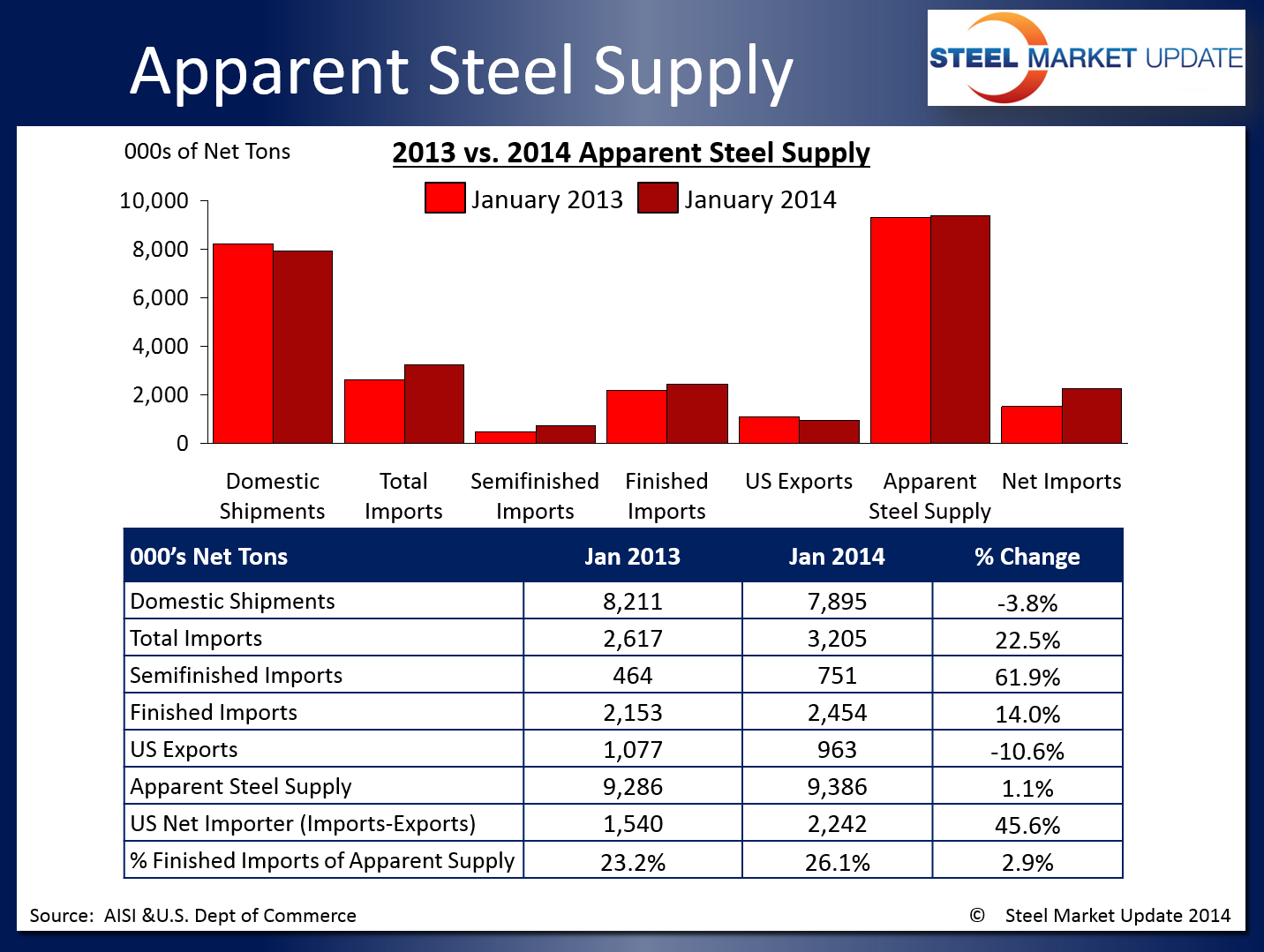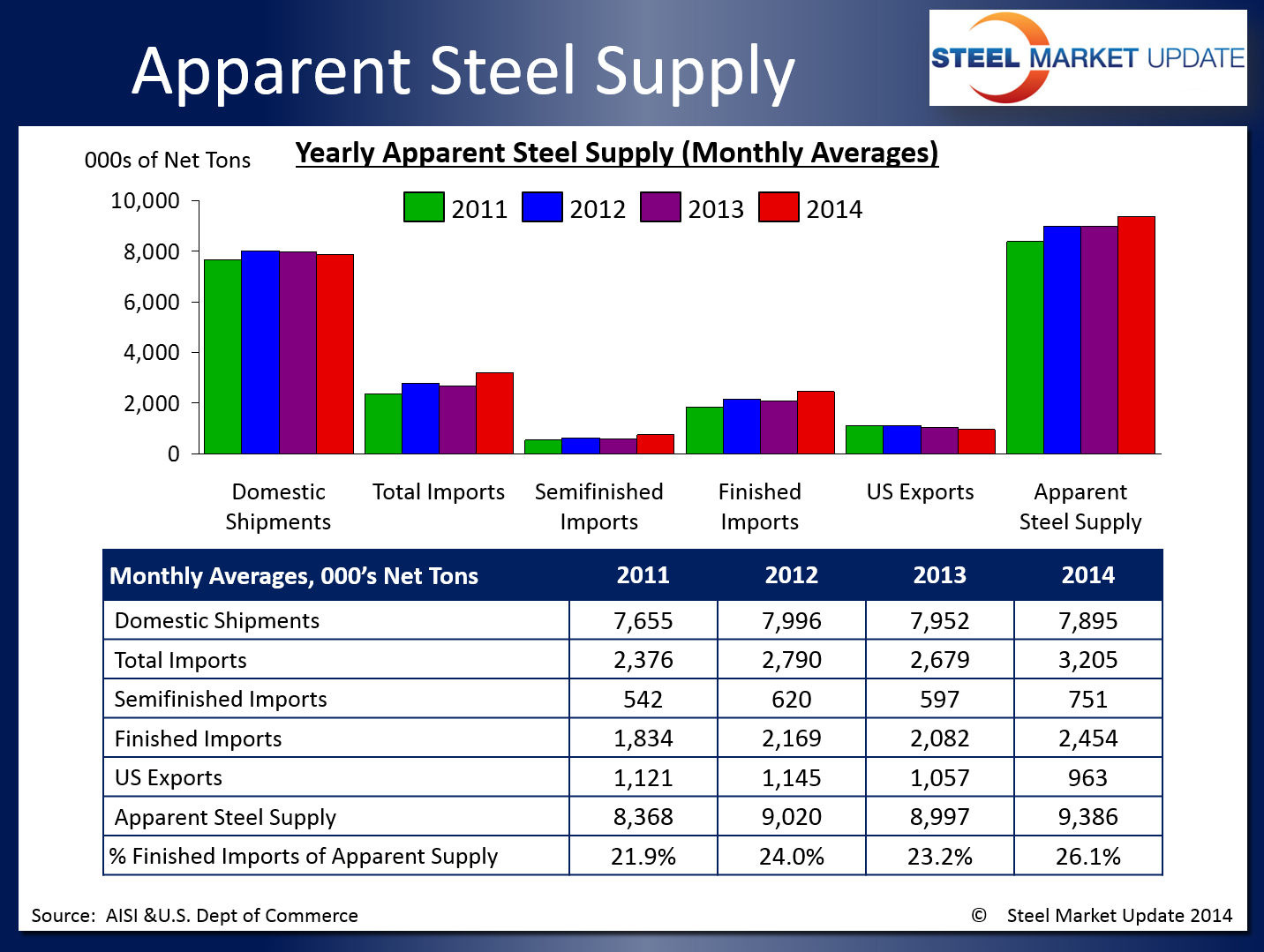Prices

March 11, 2014
Apparent Steel Supply Up in January
Written by Brett Linton
Apparent steel supply for January was 9,386,260 net tons, a 1.1 percent increase compared to the same month one year ago. Although steel imports were up and exports decreased over these periods, the decrease in domestic shipments negated any big changes in total apparent supply. The net trade balance between steel imports and exports was a surplus of 2,242,187 net tons in January, an increase of 45.6 percent from the same month last year.
When compared to last month when apparent steel supply was at 8,662,212 NT, January supply increased by 724,048 NT or 8.4 percent. All of the other statistics used in the calculation of apparent steel supply increased as well, such as a 3.4 percent increase in domestic shipments, a 29.1 percent increase in finished imports, and a 10.5 percent increase in total exports.
On a year to date basis, the 2014 YTD averages (only January so far) are very close to what we saw during in the previous two years and, for the most part, significantly higher than 2011 figures.









